With tradition and progress successfully interwoven throughout the nation, Indonesia boasts a colorful culture that reflects its historical and geographic diversity. For travelers and cultural buffs looking to explore the rich legacy of this archipelago, it’s important to get a handle on the country’s diversity.
From ancient tribal customs and centuries of colonization to the rebirth of arts and culture since independence, I’ll take you through the country’s art, religions, food, festivals, and social norms.
If you’re looking to stay connected during your trip, an iRoamly Indonesia travel eSIM is the solution. Fast data and reliable coverage – whenever you need it.
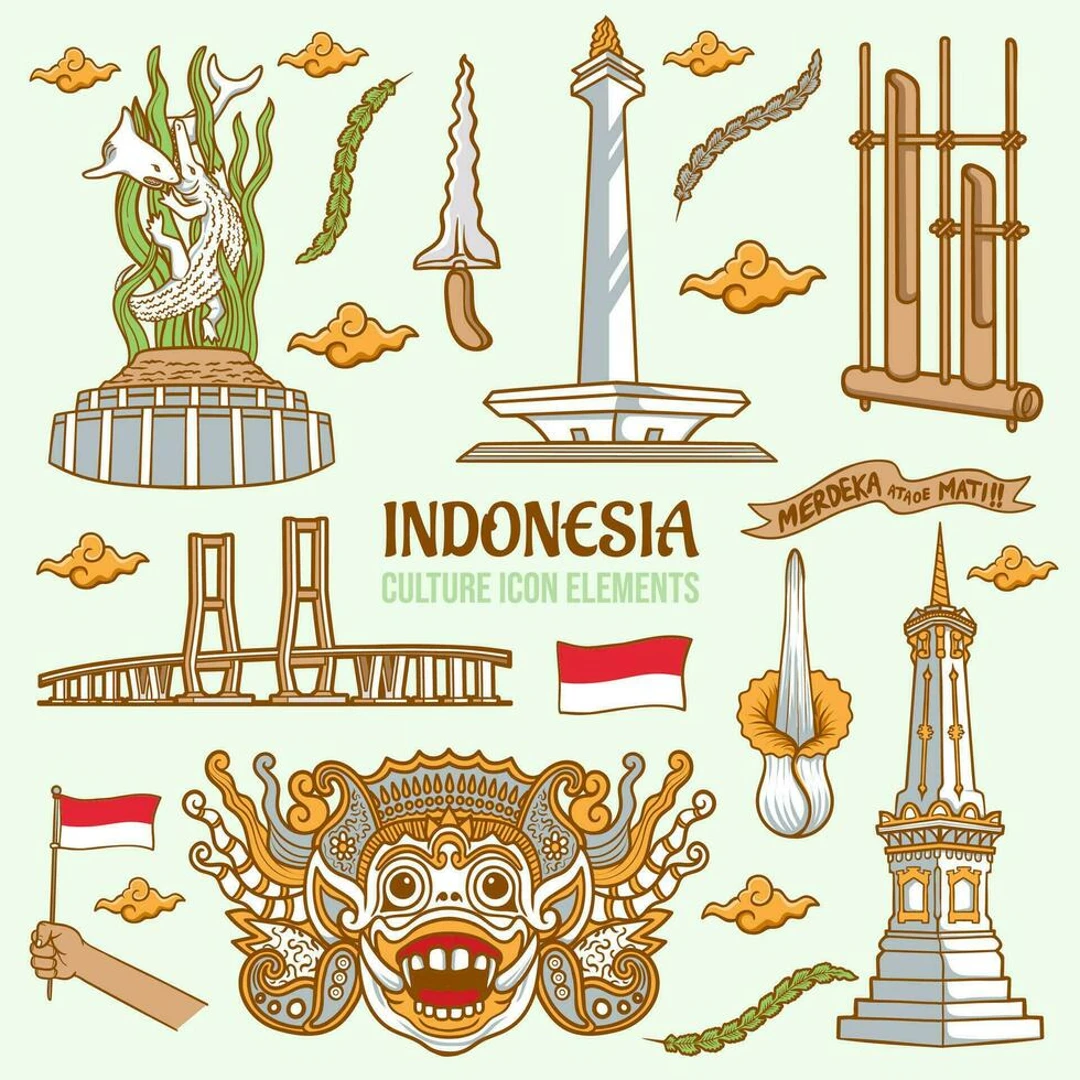
Historical Background
Let’s take a closer look at some of the history of Indonesia’s culture. Early on, the customs of the indigenous peoples were already strong.
With the arrival of Hinduism and Buddhism from India, they started to shape the culture. Later came Islam, further influenced by what’s here today.
Looking ahead, colonization was a key influence on Indonesia’s development. The Europeans, led by the Dutch, had a huge impact, blending their traditions with those of the local people to create a distinctive hybrid culture, evident today in art, architecture, and language.
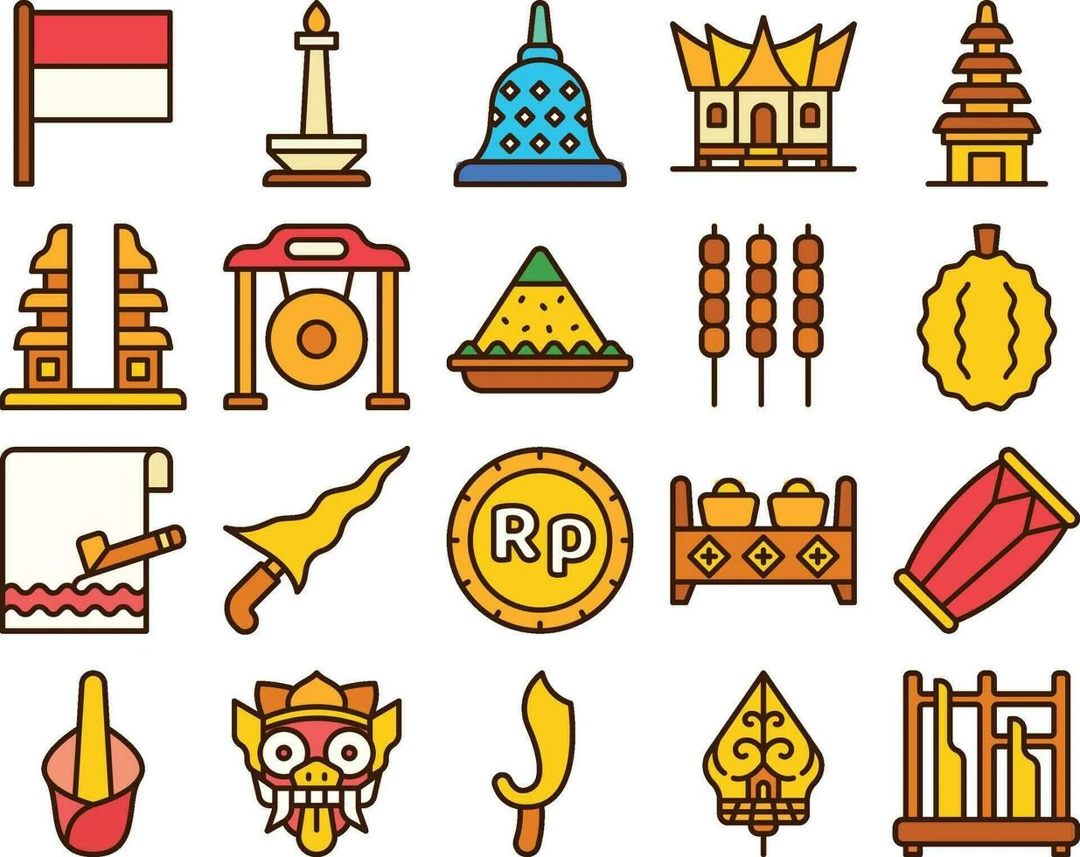
After gaining their independence following World War II, Indonesia went through a cultural renaissance of its own — one that emphasized the appreciation and the preservation of their indigenous arts and crafts, while allowing modern-day outside influences to simultaneously flow in.
Traditional Arts
Visual Arts
Indonesian visual arts are fascinating and refreshing, blending a sense of history with sophistication. The most well-known is batik, in which artists use wax-resist dyeing to create detailed patterns on fabrics.
There are also many wonderful wood carvings, with different stories depicted in each carving, from mythical beasts to scenes of daily life, and traditional paintings are rich in color and usually retell old tales and religious stories.
Performing Arts
Indonesia boasts a vibrant and exciting performing arts scene. Traditional dances, like Balinese dancing, are a must-see—elegant, beautiful, and a true reflection of the country’s culture.
You should also experience Gamelan music, an ensemble of percussion instruments that’s both unique and utterly captivating.
Another art form you can’t miss is Wayang Kulit, or shadow puppetry.
Puppeteers use intricately crafted puppets to tell stories against a lit screen, and the combination of these tales with soft, melodic music is truly mesmerizing.
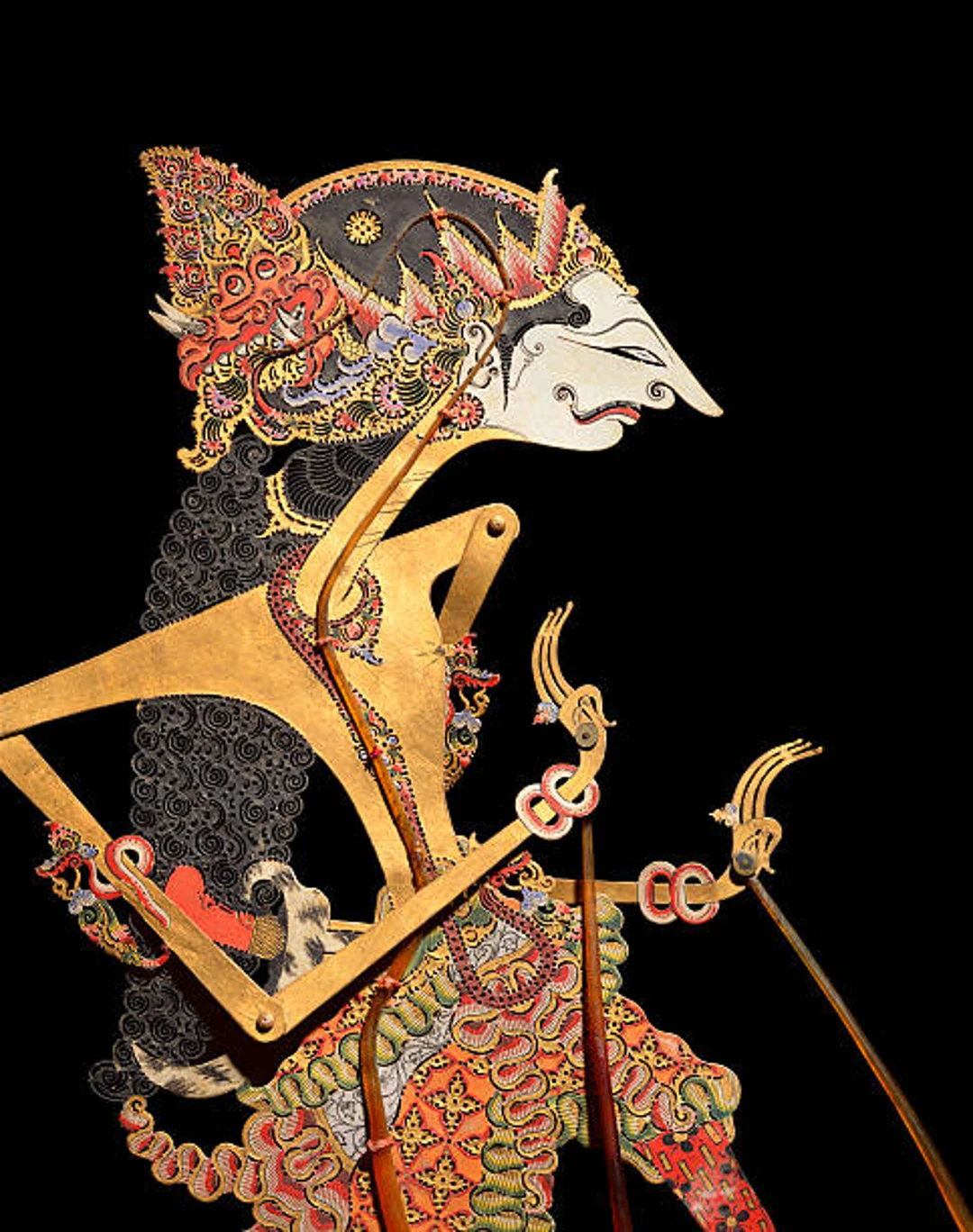
Craftsmanship
The craftsmanship there is remarkable, as it reflects hundreds of years of experience, pride, and history.
Locals produce detailed ornaments, textiles, and pottery, often intricately designed that it can take months to create a single piece. They are also expert weavers, with each region using its own colors and patterns.
No matter in which direction you turn, you’ll find some sort of handcrafted item that represents generation’s old art tradition.
Religion and Spirituality
Indonesia is a vibrant tapestry of religions and religious practices that deeply impact daily life. The country is predominantly Muslim, and religion in Indonesia plays a significant role in society, influencing everything from music to architecture.
But that’s not all. Bali, for example, practices Hinduism, where daily ceremonies and offerings are part of the island’s spiritual fabric.
From massive mosques like Istiqlal in Jakarta to centuries-old Hindu temples like Prambanan and Besakih, visiting these religious sites offers valuable insights into the country’s diverse heritage.
Then there’s the breathtaking Borobudur, a monumental Buddhist temple that rises from the jungle.
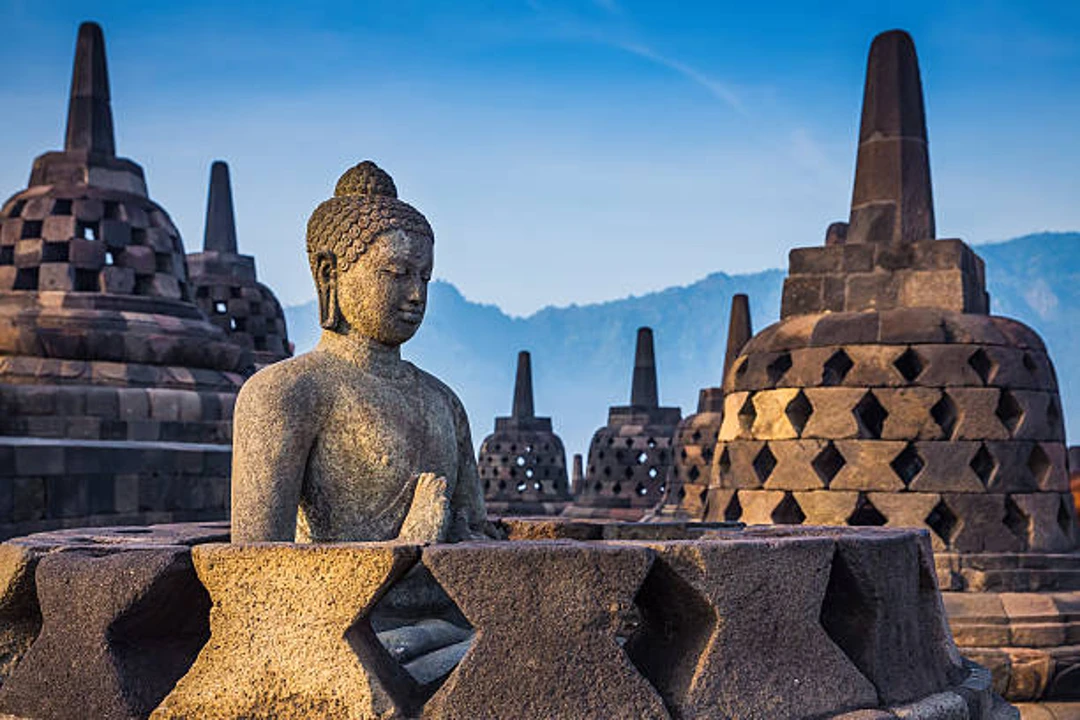
Festivals are more than just events in Indonesia; they are lively celebrations that bring communities together in reflection and shared joy. Whether it’s the colorful Galungan processions in Bali or the grand feasts of Idul Fitri marking the end of Ramadan, there’s always something exciting to experience.
Indonesians embrace the pageantry of each festival as a way to honor their religion and heritage while staying connected to the past amidst the changing pace of modern life.
Indonesian Cuisine
Indonesian food is incredible, offering a rich array of flavors. Each region of the country boasts its own unique cuisine, making the food diverse and full of life.
Nasi Goreng, a spicy fried rice, is a staple in Java, while Satay—skewered and grilled meat, usually chicken or mutton, served with a flavorful peanut sauce—is a must-try!
For something regional, Sate Padang is a standout: a type of satay coated in a bold, spicy seasoning.
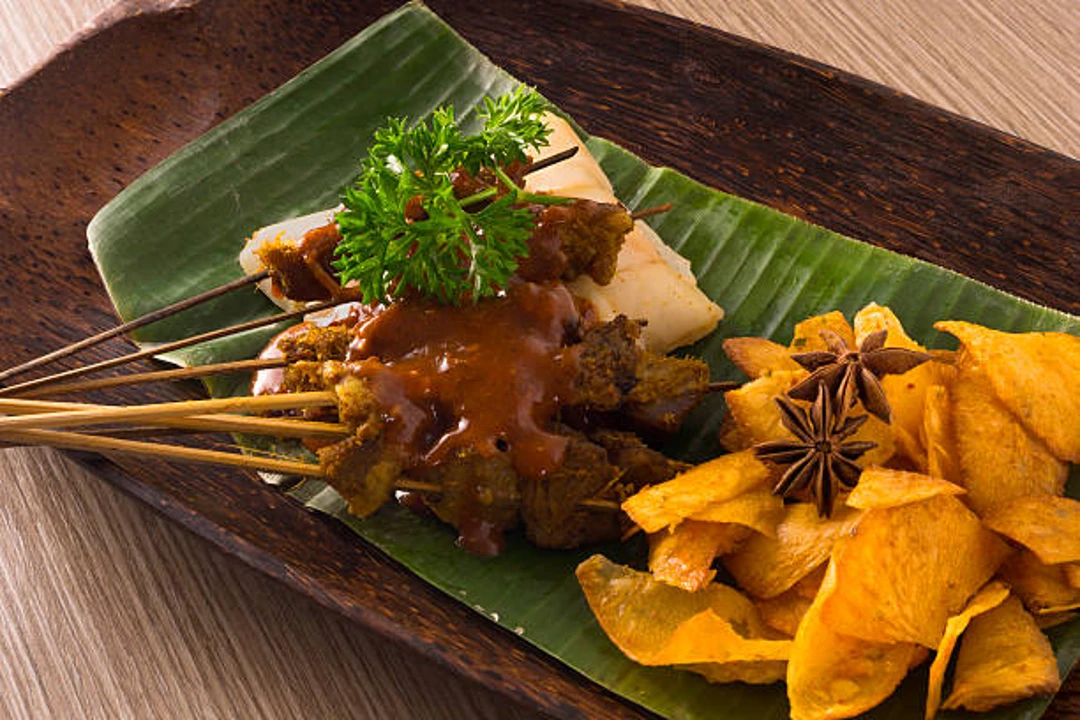
If you’re in the mood for something healthy and light, Gado-Gado, a salad of boiled vegetables, tofu, and eggs drizzled with a rich peanut sauce, is the perfect choice. Indonesian cooking offers a glimpse into the country's culture, traditions, and heritage.
By blending modern and traditional techniques, every bite delivers an unforgettable experience, allowing travelers to savor the country’s diverse and mouthwatering cuisine.
Festivals and Celebrations
Indonesia is a country of festivals, tradition, and modernity all at once. For example, during Eid al-Fitr, the massive celebration on the final day of Ramadan, families gather to feast and show gratitude. Everyone dons their finest attire, and the streets are filled with joyful gatherings and laughter.
Nyepi, the Balinese Day of Silence, is unlike anything I’ve ever seen. The entire island shuts down for a day of self-reflection and meditation.
On the complete opposite end, Galungan (also in Bali) features incredible processions and dances to celebrate the defeat of evil. It’s a time to pay homage to ancestors, and the temples are dressed to the nines.
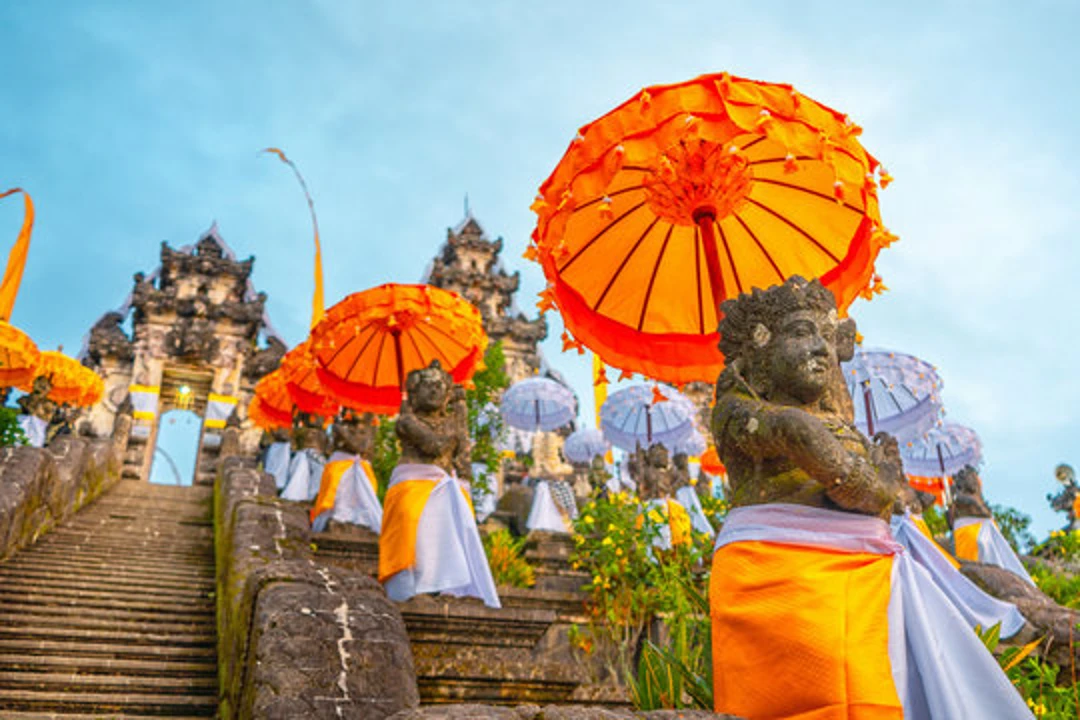
Waisak, the Buddhist festival at Borobudur, is breathtaking. Buddha’s birth, enlightenment, and death are commemorated with thousands of lanterns released into the sky.
These celebrations aren’t simply for show—they’re deeply cultural, reflecting the diversity of communities in Indonesia and how they continue to honor and preserve their traditions.
Social Customs and Values
Family is the core of life in Indonesia. From the bustling capital of Jakarta to the more remote and wild regions of Sulawesi, strong family values unite the country.
The elderly are highly respected, and their advice is often sought on important community and personal matters. This respect for age and experience plays a substantial role in daily life.
While traveling around Indonesia, you'll find the people very welcoming to tourists. A smile is the common greeting, and it’s typical to offer food and drink to guests. It’s all part of the tradition and etiquette embedded in Indonesian culture. This reflects the collectivistic ideology present across the archipelago.
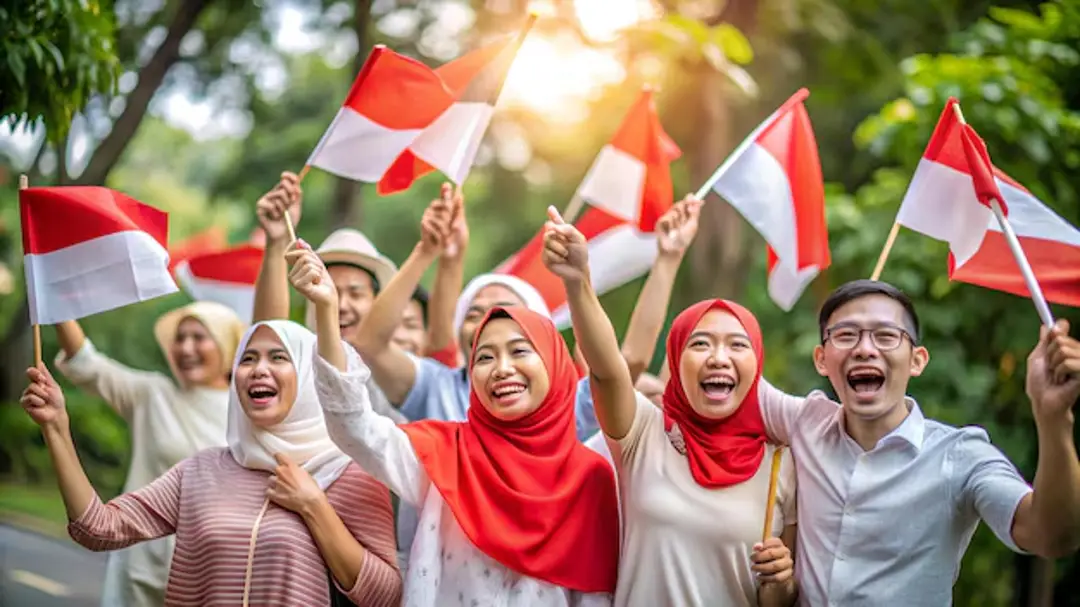
Indonesian gender roles are a mix of tradition and change. In most communities, there are clear expectations and responsibilities for both men and women, often shaped by faith and customs.
However, the country is also undergoing rapid change, which has provided more women with opportunities to hold leadership roles and contribute on a larger scale.
People are expected to be polite and peaceful. This means they are rarely direct and often go out of their way to make others feel comfortable.
Indonesians are humble, soft-spoken, and use indirect communication to maintain harmony and avoid conflict. It’s a peaceful environment where people respect one another and take time to understand each other.
Conclusion
Indonesia is a country that seamlessly combines the old and the new. We’ve explored the history and geography that have shaped its unique hybrid culture, offering a fascinating experience for travelers and culture enthusiasts.
From ancient traditions to rich flavors and artistic expressions, Indonesia’s history comes alive through its cultural heart.
By immersing ourselves in Indonesian culture, we bridge the gap between its ancient past and vibrant present.
So, why not visit some museums, sample local dishes, or attend a local event to truly experience the essence of Indonesian culture?
